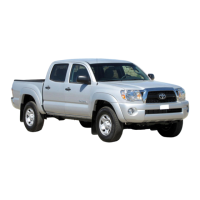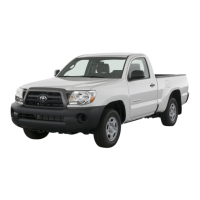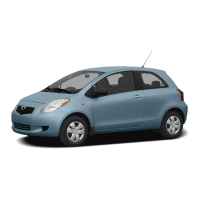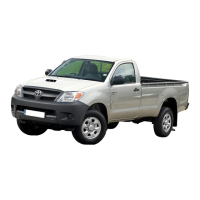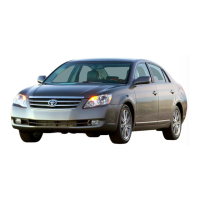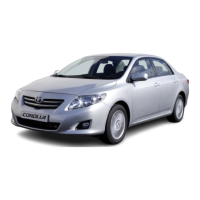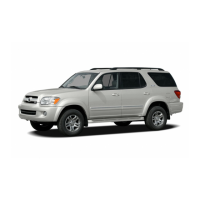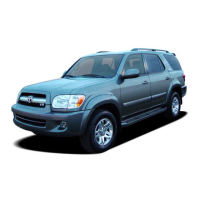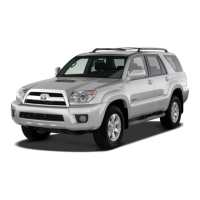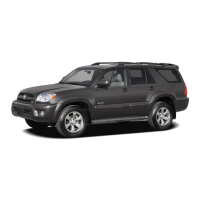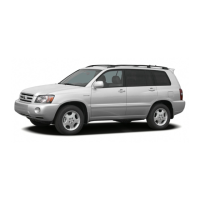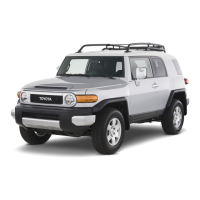470
2007 TUNDRA from Jul. ’07 Prod. (OM34463U)
D Washing your vehicle or driving through
deep water may get the brakes wet. To
see whether they are wet, check that
there is no traffic near you, and then
press the pedal lightly. If you do not
feel a normal braking force, the brakes
are probably wet. To dry them, drive
the vehicle cautiously while lightly
pressing the brake pedal with the park-
ing brake applied. If they still do not
work safely, pull to the side of the road
and call a Toyota dealer for assistance.
D Four−wheel drive models—Toyota rec-
ommends not using four−wheel drive on
dry hard−surfaced roads, because four−
wheel driving will cause unnecessary
noise and wear, and poor fuel econo-
my.
D Four−wheel drive models—In cold tem-
peratures, noise may occur when driv-
ing in two−wheel drive before the trans-
fer is warmed up. Therefore, first drive
in four−wheel drive until the transfer is
warmed up.
CAUTION
D Before driving off, make sure that
the parking brake is fully released
and the brake system warning light
(parking brake reminder light) is
off.
D Do not leave your vehicle unat-
tended while the engine is running.
D Do not rest your foot on the brake
pedal while driving. It can cause
dangerous overheating, needless
wear, and poor fuel economy.
D To drive down a long or steep hill,
reduce your speed and downshift.
Remember, if you ride the brakes
excessively, they may overheat and
not work properly.
D Be careful when accelerating, up-
shifting, downshifting or braking on
a slippery surface. Sudden accelera-
tion or engine braking, could cause
the vehicle to skid or spin.
D Do not drive in excess of the speed
limit. Even if the legal speed limit
permits it, do not drive over 140
km/h (85 mph) unless your vehicle
has high−speed capability tires.
Driving over 140 km/h (85 mph) may
result in tire failure, loss of control
and possible injury. Be sure to con-
sult a tire dealer to determine
whether the tires on your vehicle
are high−speed capability tires or
not before driving at such speeds.
D Do not continue normal driving
when the brakes are wet. If they are
wet, your vehicle will require a
longer stopping distance, and it
may pull to one side when the
brakes are applied. Also, the park-
ing brake will not hold the vehicle
securely.
07 04.26
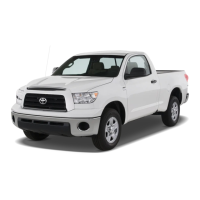
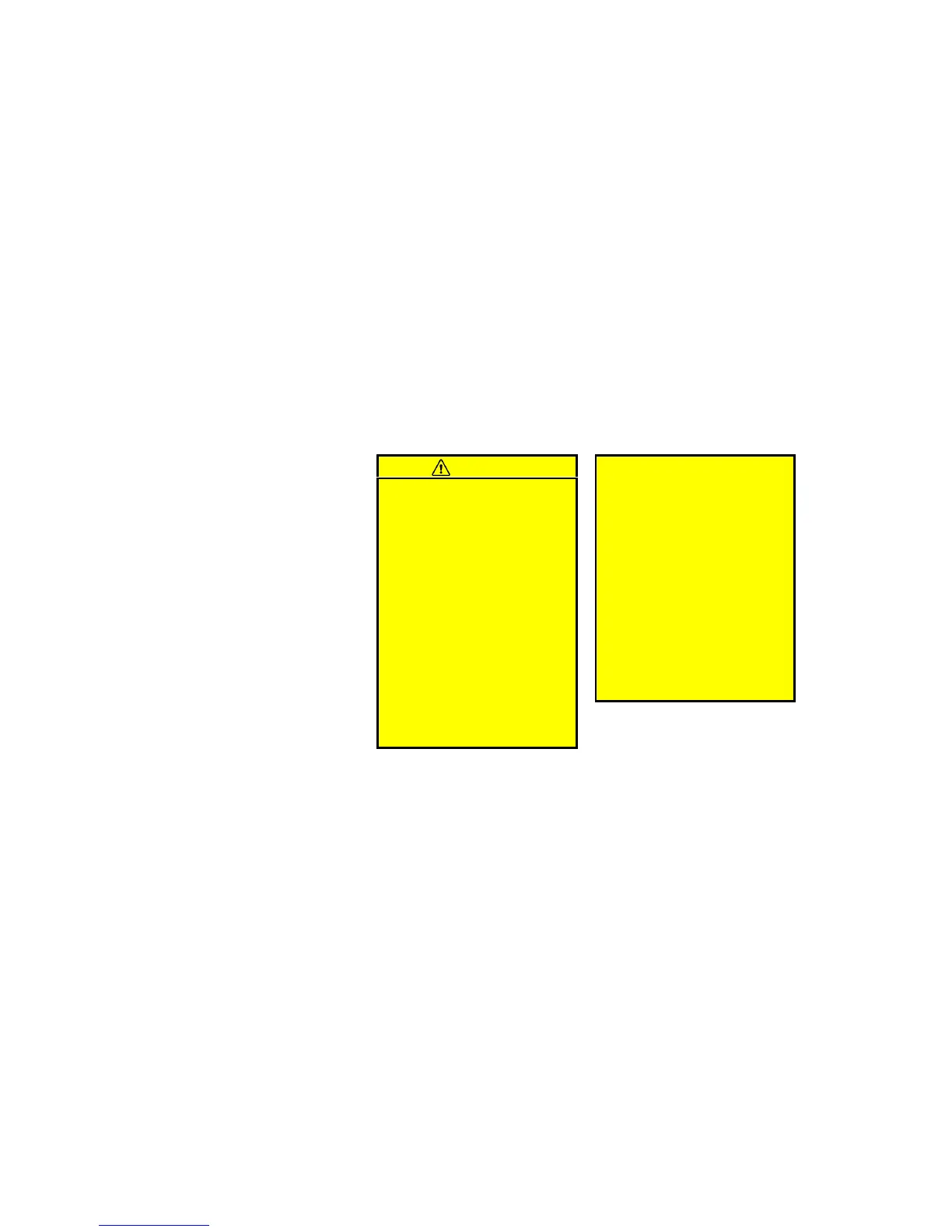